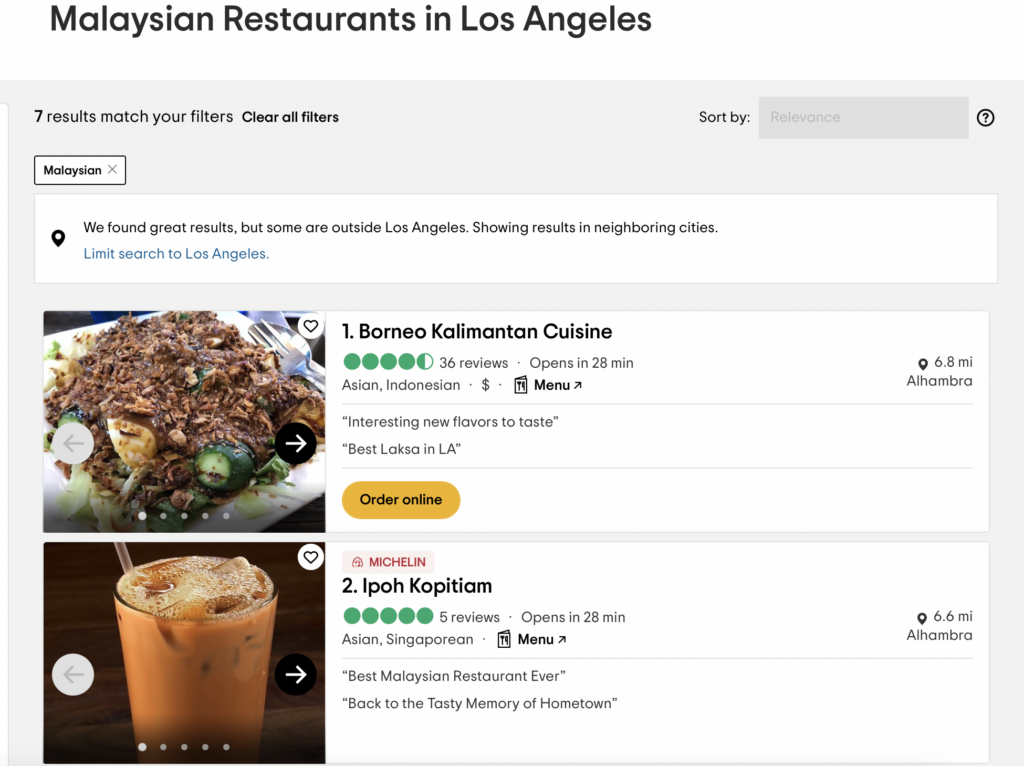From Hollywood To Malaywood To Tourism Industry

Wow!!! Is there a thing called MALAYWOOD ?? I didn’t know that but its one of the popular FB page ..
Anyway , looking back where our Film Industry started ; we should have our own MALAYWOOD.. The industry was so active in 50’s and 60’s that by right we should have a big sustainable international film and creative industry here in Malaysia … Of course , Singapore plays an important role as the Moghul of Malay Film Industry ; Run Run Shaw was based in Singapore .
What I am going to write today is about why should our film industry be linked with the international market such as HOLLYWOOD.
Hollywood’s film and television productions have a significant global reach and influence, and by partnering with Hollywood studios and production companies, Malaysia’s film and television industry can gain access to these global audiences and markets. This can lead to increased exposure for Malaysian productions and talent, as well as potential collaborations and co-productions.
ok ok some says that we don’t have enough acting talents to penetrate Hollywood except one or two such as Michelle Yeo which recently won an award in Golden Globes but Malaysia has a huge talents in other areas such as animation and visual effects (VFX).
The VFX industry is a growing field, with a high demand for skilled professionals. By collaborating with Hollywood studios and companies, Malaysia’s animation and VFX industry can access the latest technology and techniques, as well as opportunities for training and professional development.
By the way , a little sideline ; it’s interesting to know what an independent filmmaker Pete Teo says Malaysia has no right to claim with Michelle Yeoh’s achievement.. Wonder why ??

Anyway , back to the topic .
We all know that Hollywood can also provide opportunities for Malaysia’s creative industry in other areas, such as music, gaming, and digital media. By working with Hollywood studios and companies, Malaysia’s creative industry can gain access to new technologies, funding, and distribution channels.
It’s important to link with Hollywood which will greatly benefit Malaysia’s creative industry, providing opportunities for increased exposure, collaboration, professional development, and access to new technologies and markets. ….
….and It is an important step for Malaysia’s creative industry to take in order to remain competitive in the global entertainment landscape.
and why am i so “SIBUK SIBUK” to encourage Malaysian Film Industry to link with HOLLWOOD ??
What is the benefit for TOURISM INDUSTRY??
Linking with Hollywood will have a positive impact on Malaysia’s tourism industry. Here are a few ways it can help our tourism industry:
- Location-based tourism: Hollywood productions often require exotic locations for filming, and Malaysia offers a diverse range of landscapes and settings, from tropical beaches to dense jungles and modern cities. By attracting more Hollywood productions to film in Malaysia, the country can showcase its natural beauty and cultural heritage to a global audience, which can increase interest in visiting the country as a tourist destination.
- Film-induced tourism: When a movie or TV show is set or filmed in a particular location, it can create a sense of familiarity and intrigue among viewers, which can lead to increased tourism to that location. For example, the popularity of the TV show “Lost” led to a significant increase in tourism to Hawaii, where it was filmed.
- Promotion of Malaysia: Hollywood productions can serve as a platform to promote Malaysia as a tourism destination. For example, if a Hollywood production prominently features Malaysia’s food, culture, or landmarks, it can increase awareness and interest in visiting the country among the global audience.
- Job Creation: The growth in the tourism industry will also lead to more job creation in the sector, which can benefit the local population.
Linking with Hollywood can greatly benefit Malaysia’s tourism industry by showcasing the country’s natural beauty and cultural heritage, attracting more visitors, and promoting Malaysia as a tourist destination. It can also create more job opportunities for locals.
Now who should do the linkage between HOLLYWOOD and MALAYWOOD , that will be a different topic. Who’s job is that?
Actually , we used to have the link with Hollywood when famous actor John Wayne visited Malay Studio in Singapore
We were also lucky that we had 1 important persons in our film industry : P.RAMLEE

P. Ramlee was a prominent Malaysian film actor, director, and musician in the 1950s and 1960s. He was a major figure in the development of the Malay film industry and his films were widely popular across Southeast Asia. P. Ramlee’s films often featured elements of traditional Malay culture and folklore and were known for their comedic and musical elements.
We also do not forget that Shaw Brothers Studio plays an important role too
The studio was a Hong Kong based film production company that was also active in Malaysia during the 1950s and 1960s. They produced a number of Malay-language films and played a significant role in the development of the Malay film industry during that time.
Both P. Ramlee and Shaw Brothers studio have contributed significantly to the development of the film industry in Malaysia, by producing and promoting local films, and helping to establish a local movie-going culture. Their films were popular and helped to build the foundation of the film industry in Malaysia.
Now . let’s check out on how Korean Creative Industry started and how it benefit their tourism industry even though they started later than Malaysia.

The history of the Korean creative, film, and tourism industries is closely tied to the country’s political and economic development.
In the early 20th century, Korea was under Japanese colonial rule, during which time the Japanese government heavily suppressed Korean culture and promoted Japanese culture. After World War II and the end of Japanese colonial rule, Korea began to rebuild its economy and culture, and the creative and film industries started to develop.
In the early years of post-war Korea, the film industry was primarily focused on propaganda films that promoted the ideology of the government. However, in the 1960s, the government began to relax censorship laws, and the film industry began to evolve and diversify. This led to the emergence of a new generation of filmmakers, who began to create more socially and politically conscious films.
During the 1970s, the Korean film industry experienced a period of rapid growth, driven by increased investment and the emergence of a new generation of talented filmmakers. In the 1980s, the Korean film industry faced a crisis due to overproduction and a lack of investment, but by the 1990s, the industry had recovered and began to experience a new period of growth, driven by the emergence of new technologies and the increasing popularity of Korean films.
In the early 2000s, the Korean film industry began to gain international recognition for its unique, high-quality, and diverse films. This increased the popularity of Korean films and led to an increase in the number of foreign visitors to Korea.
In terms of the Korean tourism industry, it has seen a steady growth in the last decades. The government has invested in the development of tourism infrastructure, and has also promoted the country as a tourist destination through various campaigns. The growing popularity of Korean culture, including K-pop and Korean dramas, has also helped to increase interest in visiting the country.
The Korean creative, film, and tourism industries have a complex history that is closely tied to the country’s political and economic development. It starts with suppression during the Japanese colonial rule, evolved to a propaganda film industry in post-war Korea, then experienced growth and crisis in the following decades and finally achieved international recognition and popularity in the last two decades, which helped the tourism industry to grow as well.
The Korean creative industry, particularly the film industry, has developed into a world-class industry that has helped to boost tourism in the country.
One of the main factors that has contributed to the development of the Korean film industry is government support. The Korean government has invested heavily in the film industry, providing funding for productions, building film studios, and implementing tax incentives for investors. This has helped to attract more investment into the industry, and has enabled the production of more high-quality films.
Another key factor that has helped the Korean film industry to develop is the emergence of a talented and diverse group of filmmakers. Korean directors, actors, and writers have gained recognition and acclaim both domestically and internationally. This has helped to raise the profile of the Korean film industry and has attracted more audiences to Korean films.
The Korean film industry also benefits from a strong domestic market. The Korean audience is known for its passion for films, and this has helped to sustain the industry and allowed for experimentation and innovation.
The Korean film industry has also been successful in exporting its films to international markets. Korean films have gained a reputation for being unique, high-quality and diverse, which has helped to attract more international audiences and increase the popularity of Korean films.
In terms of tourism, the Korean film industry has played a significant role in promoting the country as a destination. The success of the Korean film industry has helped to increase awareness of Korea as a country, and has attracted more visitors. This is especially true for historical and cultural dramas and films, which have helped to boost the interest in Korean history and culture among visitors.
Did you know that in early 2000s, the South Korean entertainment industry, including music and films, experienced a slump.
But, as the years have progressed, both sectors have grown steadily to become global superpowers in their own rights, experiencing unprecedented levels in sales and developing an audience base all around the world. Today, South Korea has established a reputation as a leading innovator in both technology and creativity. Aside from top technology brands like Samsung and LG, the country has successfully exported K-Pop and K-drama to millions of households internationally.
So what can we learn from Korean innovation, especially with regard to the film industry? Well for one thing, South Korea could be considered a leader in demonstrating how a symbiotic relationship can exist between traditional cinemas and online day and date releases.
The Korean film industry has experienced a rapidly growing digital online market, with IPTV and VOD (video-on-demand) consumption growing from $87.5 million in 2009 to $263.7 million by the end of 2013, according to the Korean Film Council (KOFIC).
The Korean VOD market, which was previously an ancillary market for film distribution, has successfully stepped up to be recognised as an equally important distribution channel as theatrical release in terms of marketing and distribution. Production companies and distributors saw the ripening of this previously ancillary market to a full bloom commercial arena for growth and new untapped opportunities.
One such opportunity was the possibility of providing increased integrated market data, including information on revenue from digital distribution, which increasingly helps production companies to better plan their next project and to direct their marketing strategies.
Today, the Korean film and creative industry has grown into a world-class industry thanks to government support, a talented and diverse group of filmmakers, a strong domestic market, and successful export to international markets. It has also played a significant role in promoting Korea as a tourist destination. Who doesn’t know film like WINTER SONATA which popularise Nami Island in Korea.

How we can learn from Korean on how they develop film, creative and tourism industry?
- Investing in the film industry: The Korean government has invested heavily in the film industry, providing funding for productions, building film studios, and implementing tax incentives for investors. Malaysia could also invest in the film industry by providing funding for productions and building film studios, as well as implementing similar tax incentives for investors.
- Developing a diverse group of filmmakers: Korea has a talented and diverse group of filmmakers. Malaysia could also focus on developing a diverse group of filmmakers by providing training and education opportunities and encouraging the participation of underrepresented groups in the film industry.
- Building a strong domestic market: Korea’s strong domestic market has helped to sustain its film industry and allowed for experimentation and innovation. Malaysia could also focus on building a strong domestic market by encouraging the local audience to watch and support Malaysian films.
- Exporting films to international markets: Korea has been successful in exporting its films to international markets, which has helped to raise the profile of the Korean film industry. Malaysia could also focus on exporting its films to international markets by participating in international film festivals and markets, and by collaborating with international studios and production companies.
- Promoting the country as a tourist destination: Korea’s film industry has played a significant role in promoting the country as a tourist destination. Malaysia could learn from this by promoting its unique cultural heritage and natural beauty through films and other creative works, and by highlighting the filming locations in Malaysia in tourism campaigns.
- Creating job opportunities: Korea’s film and creative industry has also created job opportunities for locals. Malaysia could learn from this by creating more job opportunities in the film and creative industry which will help to boost the economic development.
Malaysia can learn a lot from Korea on how to develop its film, creative, and tourism industries by investing in the film industry, developing a diverse group of filmmakers, building a strong domestic market, exporting films to international markets, promoting the country as a tourist destination, and creating job opportunities.
Why is important Malaysia to follow Korean foot step in making Creative , Film and Tourism Industry as the main focus??
I could think some of the reasons:
- Economic growth: The creative, film, and tourism industries are important drivers of economic growth. By focusing on these industries, Malaysia can diversify its economy and create new job opportunities.
- Branding and promotion: The creative, film, and tourism industries can be used to promote and brand Malaysia as a destination for culture, art, and entertainment. This can help to attract more visitors and investment to the country.
- Cultural preservation and promotion: The creative and film industries can be used to preserve and promote Malaysia’s unique cultural heritage and traditions. This can help to raise awareness of Malaysia’s culture and history, and attract more visitors interested in experiencing it.
- Access to global markets: The film and creative industries are global in nature and by focusing on these industries, Malaysia can gain access to global audiences and markets. This can lead to increased exposure for Malaysian productions and talent, as well as potential collaborations and co-productions.
- Innovation and development: By focusing on the creative, film and tourism industries, Malaysia can foster innovation and development in these areas. This can lead to the creation of new technologies, products, and services, which can benefit other industries as well.
- Increase competitiveness: By following Korea’s footsteps in making the creative, film and tourism industries a main focus, Malaysia can increase its competitiveness in the global entertainment landscape.
I personally believe that CREATIVE INDUSTRY IS VERY IMPORTANT FOR MALAYSIA TOURISM INDUSTRY.. It’s a WIN WIN SITUATION For EVERYONE
Can we agree on this ??
Malaysia should focus on the creative, film, and tourism industries as it can drive economic growth, promote and brand the country, preserve and promote cultural heritage, gain access to global markets, foster innovation and development, and increase competitiveness in the global entertainment landscape.
… but first thing first , let’s do a little bit HOUSEKEEPING
We are taking care of our own CREATIVE TALENTS??
For example : Are we taking care of CONTENT PROVIDER as we know CONTENT is THE KING and we need a lot of quality CONTENT PROVIDER ..
Who are taking care of Screenwriter ?? Are they being paid enough ?
I personally know that one screenwriter been paid only Rm 150 eventhough she successfully pitched the film to received a Govt grant of Rm 700,000..
Now is it fair ?? and there is no current mechanism that Screenwriter gets any royalty same as Song Writer ..
So there is a need to do a little bit of HOUSEKEEPING before we can move forward.. It’s a CHICKEN and EGGS kind of thing
Whatever it is , we need to make sure that there is a strong link between HOLLYOOD and MALAYWOOD in order to bring Malaysia Tourism Industry to another level..
What says you ??











